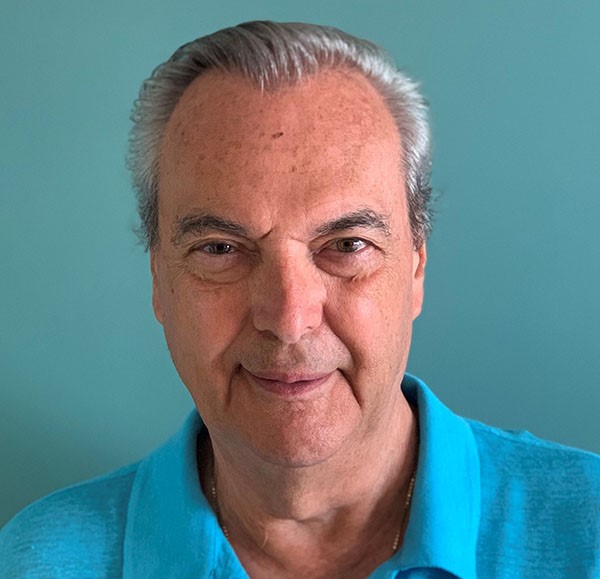The drive for sight-saving eye injections at Spire Leeds Hospital
21 September 2021
Every month Richard Danon, a semi-retired chairman of a Bradford printing firm, makes a round trip of over 400 miles to receive sight-saving injections into his right eye at Spire Leeds Hospital.
Richard, 76, who is originally from Leeds and now lives in London, has age-related wet-macular degeneration and needs injections to save his sight from deterioration. If left untreated it could cause permanent blindness within months. Despite there being several centres closer to home that could administer this intravitreal treatment – a shot of medicine injected into the eye, he feels the distance he has to drive is more than worthwhile to receive specialist treatment and a monthly examination under the care of Mr Raj Mukherjee, consultant ophthalmologist at Spire Leeds Hospital.
He said, “No one wants to hear they need to have injections into their eyes. It’s an alarming prospect. I seem to suffer from extreme sensitivity in my eyes and the experience must be as ‘pleasant’ as it can be. I find Mr Mukherjee’s technique to be exceptionally gentle and precise. If I didn’t have the injections, I would eventually lose my sight in that eye.”
Richard first became aware of a deterioration in his eyesight five years ago. “I noticed I couldn’t see a straight line anymore, they all appeared to be distorted or bent. It happened suddenly. I was initially referred to Mr Tim Dabbs who looked after me with great care. Following his retirement I was introduced to Mr Mukherjee who recommended I have intravitreal injections. I don’t think my eyesight can improve, it’s more about maintaining stability. I travel up to Spire Leeds with my wife every four weeks, we stay a few days and see friends, then my wife drives me home. We moved from Leeds to London five months ago to be closer to our daughter and I’ve been returning for the treatment since then.”
Wet Macular Degeneration is a chronic eye disorder that causes blurred vision or a blind spot and is generally caused by abnormal blood vessels that leak into the macula – the part of the eye responsible for central vision and detailed sight and causing loss of central vision.
During an intravitreal injection, a local anaesthetic is used to numb the surface of the eyeball before injection is administered through the white part of the eyeball and into the space at the back of the eye. The patient can go home soon after and needs to apply antibiotic eye drops for a few days following treatment.
Mr Mukherjee said, “This is a common eye condition in patients over 65 years of age and specialist knowledge is required to tailor the treatment to achieve the best outcome. As this treatment can be daunting for patients, a good relationship with the doctor is essential.
“In Mr Danon’s case, the condition is moderately advanced with loss of near vision in one eye. Without treatment, there is a high chance he would have completely lost the central vision in his affected eye. To help stop further deterioration, he needs regular treatment which is designed to preserve the existing vision. In a minority of cases, initial improvement of vision may occur with treatment.
“Early detection and regular monitoring are vital to prevent visual loss. As lost vision cannot be easily regained, the earlier the treatment is initiated, the better.”
Richard says he still has 20/20 vision in his left eye, which is compensating for his right eye.
“I’m hopeful for the future as I know I’m in good hands! Mr Mukherjee is a research scientist also and has advised about new drugs being developed and currently undergoing clinical trials that may help lengthen the time in between injections so I would not need to have them so frequently.”

